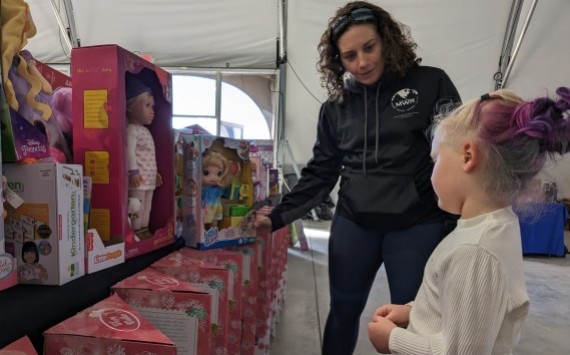The United States Army faces an increasingly de-centralized enemy in Iraq and Afghanistan and this has resulted in the need for the Army to assume a larger role as an ally and advisor to host nations.
Translators and interpreters are leading the Army in its partnerships with governments from Iraq, Afghanistan, Kuwait and Jordan.
The 51st Translator and Interpreter Company, stationed at the National Training Center and Fort Irwin, is one of two Army companies – plus a Marine Corps unit – that hosts the entirety of the Department of Defense’s uniformed linguists (Army military occupational specialty 09L).
The ability of military interpreter/translators to have native language proficiency and cultural understanding is combined with their leadership and dedication as Soldiers. The primary mission of 51st TICO occurs on deployments and the unit has more than 25 Soldiers deployed at any given time. Another assigned mission is reach-back, which is providing translation support for deployed units while in garrison.
“[Interpreter/translator] Soldiers are most effectively used in combat roles, and the demand for that role will increase in places like Iraq,” said Staff Sgt. Sabah Haseli, a platoon sergeant with 51st TICO and currently supporting reach-back.
However, the reach-back role that 09L Soldiers currently provide for the Afghan National Army in garrison will also increase as the U.S. Army’s combat role decreases in that country, stated Haseli.
The 51st TICO is unique in that it falls under the Regimental Support Squadron, 11th Armored Cavalry Regiment, supporting the NTC, but its members and daily operations impact complex political situations globally. Soldiers of 51st TICO have worked with the secretary of defense and similar-level government officials. It is the interpreter/translator Soldier’s words and products, which are read and understood by host nation government officials.
“Oftentimes we had to choose our words very carefully,” said Spc. Alexander Goda, a 51st TICO Soldier who redeployed recently. “Interpreter/translators were acting as mediators between generals and officials with different priorities. My goal was to transmit the message, without using culturally offensive language.”
At the NTC, the 51st TICO continuously conducts deployment readiness of its Soldiers while participating in the mission of training rotational units (Army brigade combat teams). The Soldiers provide support in the mock villages spread throughout the 1,200 square miles of training area. They operate logistics in the areas of food, water and generator power. They also support leadership and Soldiers running “white cells” in the villages; the cells track and report major scheduled battle events and movements to the 11th ACR, which provides the contemporary operating environment force during rotations.
Whether supporting the NTC mission or units in deployment areas, the military interpreter/translator branch does face some challenges. Reductions in forces have the potential to affect the numbers of interpreter/translators in the Army.
With new conflicts come new challenges, both deployed and in garrison. Nevertheless, the 09L branch and the Army will adapt and overcome – facing the increasingly complex conflicts head on.












